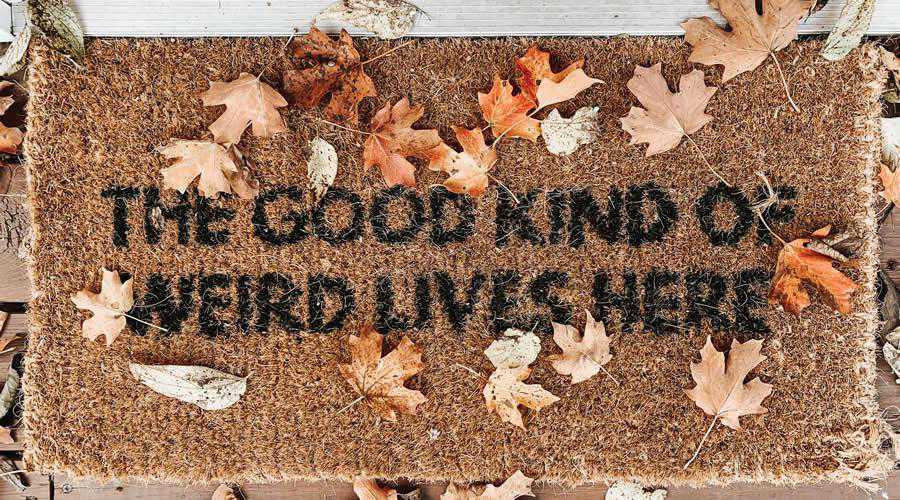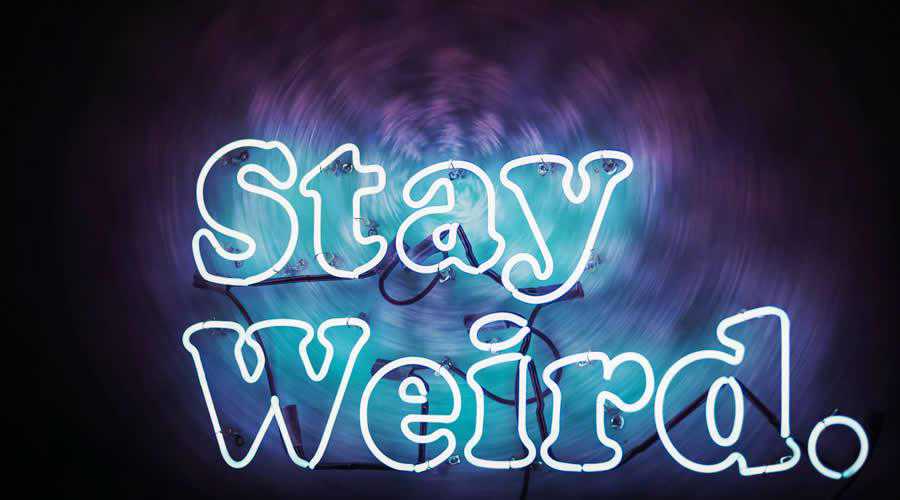Why You Should Include Your Personal Passions in Your Design Work
Anyone here have a bunch of strange, unusual, or, shall we say, “quirky” hobbies? Perhaps you like to collect bottle caps from around the world and photograph them as found typography. Or maybe you recycle old computer parts to fashion into handmade art pieces?
Come on, you’re designers – I know there’s something juicy you work on when you’re not putting your nose to the old grindstone!
If you do, excellent! If you don’t, you should really find something to do and share with others. Personal projects are not only fun and inspiring to you – they can also have the same effect on your paying clients. Having interesting side projects in your portfolio can help you make the leap from forgettable, all-purpose designer to industry superstar.
Charting A Course For Future Success
By having interesting personal work, you’re not just relieving stress or pursuing an oddball passion. You’re setting a path for your entire career. Think about it: if your career as a freelancer is focused simply on just getting your next paycheck, you’re missing out on 99% of what’s possible as a design professional. Ask yourself what you really want to accomplish in the design world. Setting high goals for yourself includes taking your personal passions into account.
A great way to determine what your real career goals are is to play what I like to call the “so that” game. For example: you’d like to build up your portfolio so that you will be more attractive to higher-quality clients. And you’d like to attract higher-quality clients so that you can network your way to a high-profile assignment. So that you can wear a jewel-studded crown and have crowds of people in togas lavishing you with adulation…
Wait… that may have been a dream I had once!
You want more high-profile assignments so that you can have a bunch of people in turtlenecks clamoring to see your work at a gallery show. There; that sounds more like a designer’s life. Once you run out of “so thats,” that’s when you’ve arrived at your true goal. In case you couldn’t tell, this can be pretty lofty. Perhaps your final “so that” is to change the world, or give back to your community, or even to be the best possible creative person you can possibly be.
Knowing the true reason why you’re doing all of this can help keep you on track when things get tough.

More Creativity Attracts More Creative Work
There are thousands of potential clients out there who you could be working for. How many of them do you need to make an impression on in order to have an amazingly successful career? The answer may surprise you – it’s a lot fewer than you think.
Your ideal clients are special individuals who are looking for uniqueness, not commodity. The main thought that goes through a design client’s head, if they’re at all savvy about design (and thus someone you want to work with) is: I wonder if I will be surprised today? Usually the answer is no; most design portfolios, unfortunately, bring more of the same ho-hum boring stuff day in and day out.
The reason for that is not because most designers are just that uncreative. Most people are capable of far more creativity than they allow themselves to get away with – because they are concerned with making a “good impression.” Well, when you’re a creative freelancer, the last thing you want to do is try to make a “good impression” by being less creative.
People are often afraid to put too much of themselves in their professional work, but as you’ll see, I believe this is a mistake. I’ve never had a problem displaying “too much” personality in my approach to a professional project. In fact, it’s been just the opposite – my clients greatly appreciated my unique perspective and loved the response my work got from their customers.
In much the same way, I love it when I hire a designer who can complement my weirdness with their weirdness. We can have a big old weirdo party and make our customers deliriously happy.

What They See Is What You Get
Your potential clients can only judge you as a designer by what you show them. If the only thing in your portfolio is bland, boring work that you only took to pay the bills, that will profoundly affect how you will be approached and what kind of work you will be offered.
No one offers an exciting, once-in-a-lifetime assignment to someone they don’t trust to put their heart and soul into it.
Think about it – if I’m a high profile client in the market for a star designer, who do you think I’m going to choose: the technically good but bland designer who only has one size fits all solutions to show me? Or the maverick designer who shows me their brilliant creativity in the form of a compelling personal project?
If you only show ‘meh’ work, you’ll only get more of that ‘meh’ work. So embrace your crazy side and make time to work on something awesome.

In Conclusion
Your portfolio is a chance to tell your personal story. Aim to take people on an emotional roller coaster ride whenever they see your work. Yes, it’s important to display your competence, but 90% of design is knowing how to think, not how to do technical stuff.
Of course you need to be able to do the technical stuff too, but that’s what’s called a “minimum requirement.” If I’m a highly desirable client, I’m not going to stop and think about whether or not you have the skills for the job. I already assume you have them, and if you don’t, I’m not even going to consider hiring you. What clients are interested in is whether or not your brain is on.
If it is, they’ll be able to see that in your work.
The post Why You Should Include Your Personal Passions in Your Design Work appeared first on Speckyboy Design Magazine.